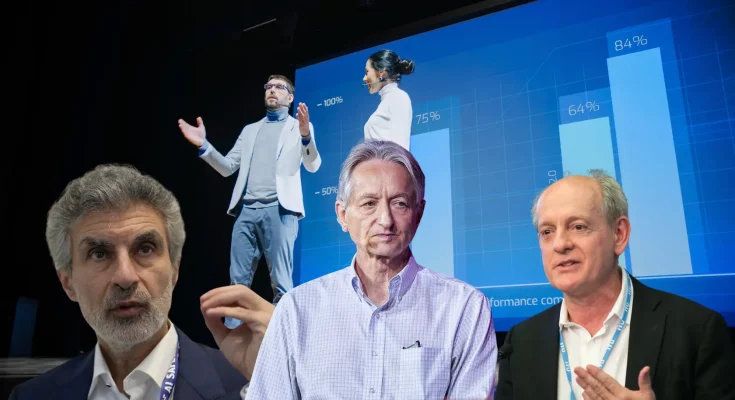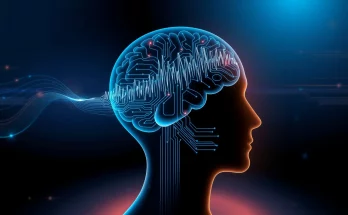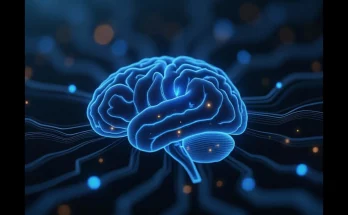As artificial intelligence (AI) continues to advance at an unprecedented pace, a growing number of top scientists are expressing serious concerns regarding the unchecked risks associated with this revolutionary technology. While AI has the potential to transform various industries and improve our daily lives, the fear of its adverse effects is prompting urgent discussions and calls for regulation.
The Rapid Evolution of AI Technology
AI has made significant progress in recent years, dominating headlines and reshaping the technological landscape. From self-driving cars to advanced language processing systems, the implications of AI are far-reaching. However, this rapid evolution poses certain risks that must not be overlooked. Scientists and technology specialists emphasize the importance of addressing these issues proactively.
The Risks of Unregulated AI Development
As AI systems become more sophisticated, the potential for misuse and unintended consequences increases. Here are some of the primary concerns that experts have highlighted:
- Autonomous Weapons: The development of AI-driven weaponry raises ethical questions about accountability and control in warfare. The lack of regulation could lead to catastrophic scenarios.
- Job Displacement: Automation powered by AI could result in widespread unemployment, particularly in sectors reliant on routine tasks. Experts worry about the societal impact of massive job losses.
- Bias and Discrimination: AI systems are trained on historical data, which may contain biases. If left unchecked, these biases can perpetuate discrimination in areas like hiring, lending, and law enforcement.
- Privacy Invasion: With the ability to analyze vast amounts of data, AI systems pose a significant risk to personal privacy. Surveillance technologies driven by AI could infringe on individual freedoms.
- Loss of Human Decision-Making: Increased reliance on AI for critical decision-making can erode human judgment, leading to poor choices in various realms, from healthcare to criminal justice.
Leading Voices in the AI Safety Debate
A variety of prominent scientists and thought leaders are speaking out on the dangers of unregulated AI. Among them are:
- Geoffrey Hinton: Known as one of the “godfathers of AI,” he has cautioned about the possibility of AI systems outpacing human understanding and control.
- Yoshua Bengio: Another pioneer in the field, he advocates for the establishment of ethical guidelines to govern AI’s development and deployment.
- Stuart Russell: A professor of computer science, Russell has been vocal about the necessity for AI systems that align with human values.
Call for Regulation and International Cooperation
Given the potential perils of unchecked AI, many scientists are advocating for stricter regulatory frameworks at both national and international levels. Key points in their proposals include:
- Establishment of Ethical Guidelines: The creation of a comprehensive set of ethical guidelines to govern AI development and deployment is crucial in ensuring technology serves societal needs responsibly.
- Collaboration Among Nations: Developing global standards for AI use can foster an environment of cooperation that mitigates potential risks. International communication and collaboration can lead to shared best practices and innovations.
- Investment in Research: Funding research into safe AI practices and technologies should be prioritized to ensure we are developing robust solutions for potential risks.
Public Awareness and Education
Part of the solution lies in raising public awareness about the implications of AI. Educating the general populace about AI technologies can empower individuals to make informed decisions about their adoption and regulation. Scientists stress the importance of:
- Outreach Programs: Implementing educational programs that inform citizens about the pros and cons of AI, as well as its potential impacts on society.
- Inclusive Discussions: Encouraging dialogue among technologists, policymakers, and the general public to foster a collaborative environment where concerns about AI can be addressed.
- Promotion of Responsible Innovations: Highlighting companies and organizations that prioritize ethical practices in AI development can set a standard for others to follow.
The Future of AI: Balancing Benefits and Risks
The future of AI remains uncertain. While it promises remarkable advancements in efficiency and capability, the associated risks cannot be ignored. It is critical for all stakeholders—scientists, policymakers, technologists, and citizens—to engage in dialogue and collaborate on creating a regulatory framework that ensures AI advancements are balanced with human safety and ethical considerations.
Conclusion
As we venture deeper into the age of artificial intelligence, the words of knowledgeable scientists ring louder than ever. Their alarms over unchecked AI risks serve as a reminder of the responsibility that comes with technological power. By advocating for regulation, fostering education, and promoting ethical practices, we can navigate the AI landscape safely and responsibly, harnessing its benefits while minimizing its drawbacks.
As we move forward, it is essential to remain vigilant and proactive. The journey toward responsible AI development is a collective effort that requires input and action from all segments of society. Only then can we ensure a future where AI serves humanity positively and ethically.



